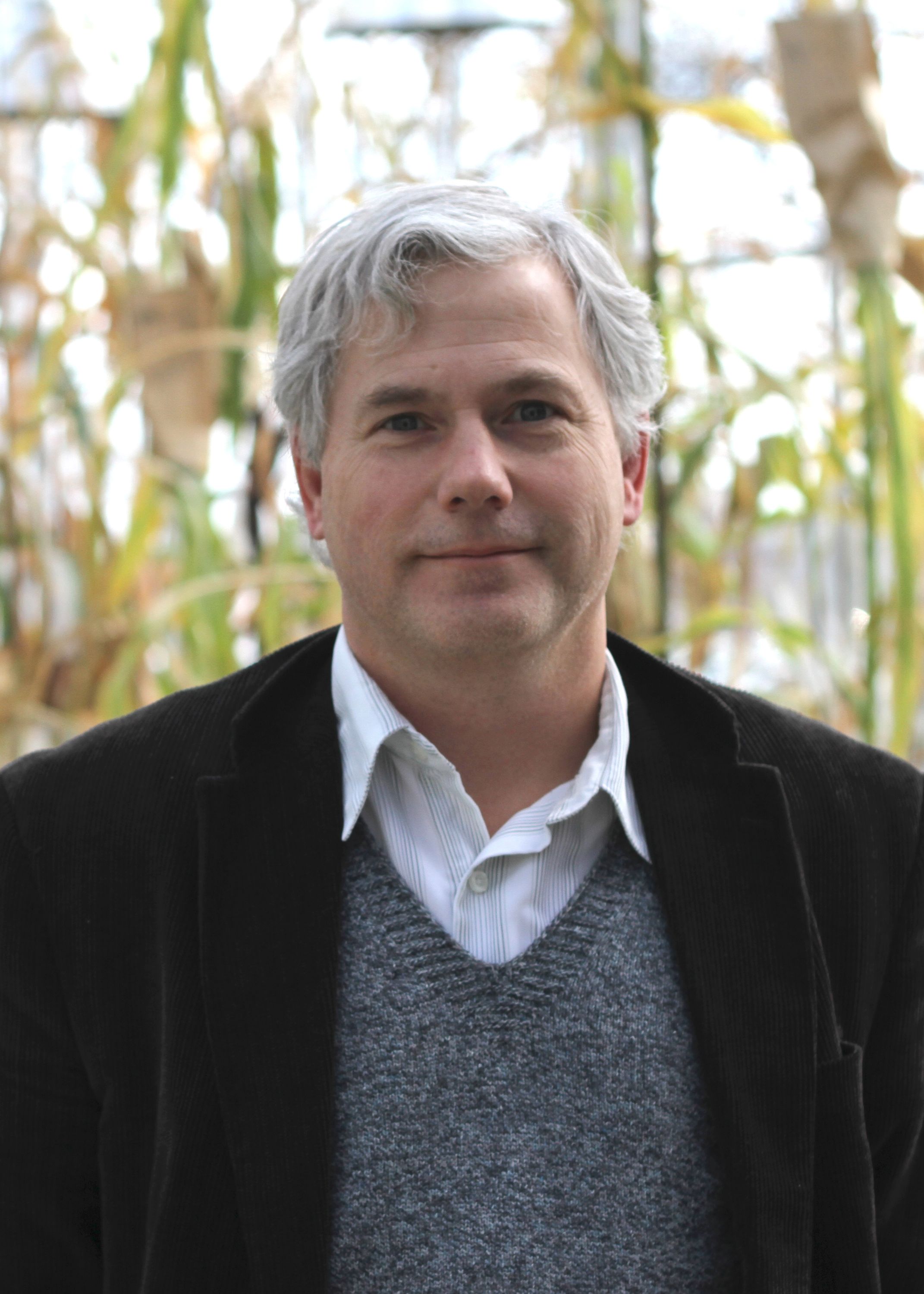Erich Grotewold named MSU Research Foundation Professor

For his groundbreaking advancements in plant sciences, Erich Grotewold has been named an MSU Research Foundation Professor, effective June 1, 2025. Awarded to exceptional faculty members, this prestigious title celebrates excellence in research and teaching and maintains a highly selective process, with just 58 other individuals across campus having received it since its inception in 2014.
Grotewold, a professor in the Department of Biochemistry and Molecular Biology and Department of Plant Biology, leads research that has profound implications for improving crop yields, plant health and agricultural sustainability, underscoring a belief that resonates deeply within his work — that plants can be the solution to many of the world's biggest problems.
A leader within MSU's collaborative plant research community
Joining MSU in 2018, Grotewold served as the chair of the Department of Biochemistry and Molecular Biology for five years, while teaching undergraduate laboratory courses and running a collaborative lab that utilized MSU’s vast network of plant scientists.
The Grotewold lab, which currently has eight researchers including undergraduate students, graduate researchers, a postdoctoral researcher, and visiting scholars, is an example of his interdisciplinary approach. The lab uses its researchers’ expertise from fields like computer science to field genetics, biochemistry, molecular biology and cell biology.
"We want to collaborate with people who can help us answer the questions we’re asking,” Grotewold said. “And that
Beyond the diverse scientific disciplines, his lab is remarkably international, usually containing representatives from at least five different countries. Grotewold, who grew-up in Argentina, has always encouraged young scientists from around the globe to spend time in his lab, having researchers from countries like Zimbabwe, Kenya, Colombia, Brazil, Argentina, Chile and China. This initiative provides invaluable experience in U.S. science but also facilitates their understanding of graduate school opportunities, and brings international talent into the heart of MSU’s unparalleled focus on plant research.
“One of the things that brought me to MSU was its interdisciplinary environment and dedication to plant-specific research,” Grotewold said. “The centrally run facilities, the community of scientists that I interact with, my colleagues, the collegiality — it's all unmatched with any other place I've been.”
Before coming to MSU, Grotewold served in impactful positions as a faculty member and program director at The Ohio State University and as an investigator at the Cold Spring Harbor Laboratories. His dedication to science and mentorship garnered accolades such as the 2006 OSU College of Biological Sciences Dean's Award for Excellence in Undergraduate Research Mentoring, and his election as a Fellow of the American Association for the Advancement of Science (AAAS) in 2009.
“Fine-tuning life” for a better world
The MSU Research Foundation Professorship comes to Grotewold for his vast contributions to the understanding of plant metabolisms, and how regulating particular genes can create new plant-based solutions to challenges like malnutrition, necessary medical advancements and climate change.
Grotewold and his team dive into the molecular mechanisms that regulate plant metabolism. These intricate genetic pathways govern the production of countless compounds that allow plants to interact with their environment, from fending off pathogens to attracting beneficial organisms.
For years, his lab has specialized in understanding how the accumulation of these compounds is regulated, with a particular focus on the pigments responsible for the vibrant colors of many flowers. Using maize as a primary system, his team pioneered the understanding of these pigment controls.
"What we have learned in maize has become a model for how those pigments are controlled in every other plant," Grotewold said, highlighting the broad impact of their foundational work. This research not only provides a blueprint for understanding pigment regulation across the plant kingdom but also offers a model for unraveling fundamental concepts of gene expression control.
The practical implications of this knowledge are vast, extending far beyond the laboratory. Grotewold said he is passionate about the potential of plants to address some of humanity's most pressing issues.
Using an analogy that compares plant genes to cars, Grotewold explains that within the greater plant research community, many of the critical genes and regulators have been studied, understood and perfected — just like a car’s major components, like tires and engines.
"But a car is much more than just the four wheels and the engine,” Grotewold said. “If you don't have the windshield wipers working, most of the time you don't care, but when it’s pouring rain, they’re critical." His lab is now exploring these "windshield wipers" of the plant world and “fine-tuning” the subtle, yet crucial, interactions that make the systems within a plant highly effective.
“We’re beginning to understand how to engineer plants for a higher purpose.”
MSU Foundation Professorship
Grotewold joins a cohort of just four other faculty members named MSU Research Foundation Professors for the year. Established in 2014, the MSU Foundation Professorship is funded through the generosity of the Michigan State University Foundation. In addition to the permanent title, honorees are typically provided with five years of supplemental scholarly funding, with the primary aim being to enhance the stature of the institution in research and creative activity.
New MSU Foundation Professors and other distinguished awardees will be recognized during a special investiture event scheduled for fall of 2025.
To view the full roster of MSU Foundation Professors or to learn more about the nomination process, visit the Office for Research and Innovation website.
- Categories: